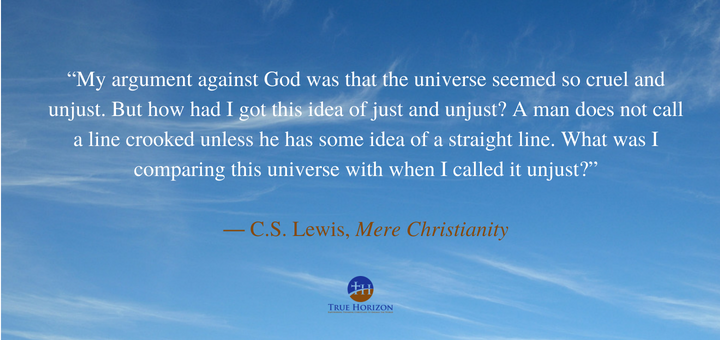Faith of the “Faithless”
 To see how this whole misapplication of what faith means plays out, I offer the assertions of the new atheist, Sam Harris, as an example.
To see how this whole misapplication of what faith means plays out, I offer the assertions of the new atheist, Sam Harris, as an example.
Sam Harris was compelled to pen The End of Faith on September 12, 2001 and wrote his Letter To A Christian Nation a few years later. He is adamant about the fact that religious views, because they are not based in “evidence” (remember that the new atheists define “evidence” as “scientific data” and scientific data alone), are irrationally held. He is one of a growing number who equate the travesties perpetrated by Muslim terrorists with anyone who claims what he calls a “rigid” religious view. According to Harris, rigid thinkers are dangerous in this world because they become too extreme.
Keep that idea in mind as you consider some points of agreement that Harris claims to share the hard-core “Christian right.” In summary, Harris agrees that (p. 3-4) …
- If one of us is right, the other is wrong.
- The Bible is either the word of God, or it isn’t.
- Jesus offers humanity the one, true path to salvation, or he does not.
- True Christians believe that all other faiths are mistaken and profoundly so.
For all the relativists out there I would like to point out that Harris, like me, appears to believe in the existence of objective truth. That being the case, we each must admit that one of us is right and one of us is wrong. It has to be so. We cannot hold completely contradictory views and both be right.
In other words, in taking the opposite view of the nutty Christians, Sam Harris is actually admitting to hold some “hard-core” beliefs himself — beliefs that are exactly contradictory, and just as rigidly held, as those of his Christian opponents. He demands that Christians are wrong, that the Bible is not the word of God, that Jesus in not the one true path to salvation etc. He writes books meant to convince you that he is right and you are wrong if you disagree with him.
In short, Sam Harris has described himself as a rigid thinker who, according to his own allegations, must also be dangerous.
My only beef with Harris is that he holds Christians in contempt for having the audacity to think they are right about the way they see the world, while he is doing the exact same thing.
Bottom line — Christianity may be true or false. We can debate the evidence (and we will). But whether it is true or not, the fact that Christians actually believe it to be true is not the problem. It is not a badge of honor to be wishy-washy. And it is not a prelude to oppression and violence to hold to concrete beliefs. It all depends on what those beliefs are, whether there is evidence to support them, and whether or not they comport with the way the world actually is. Harris cannot condemn religious belief until he first compares the nature of the religion, the worldview it creates, and the actions that result from its adherents.
Belief is not the problem. What matters is what one believes. That is what makes one dangerous. Those who actually practice Biblical Christianity should pose no threat to anyone. Conversely, following atheist ideas can be brutally dangerous to those with whom the atheist comes in contact. It goes both ways. But the simple act of actually believing something says nothing about whether or not it is true, or whether or not it is “dangerous.”




Hi Bob
Ever since I first noticed this tendency of atheist / materialists to grant themselves an exemption from the implications of their own philosophies I have worked on devising a suitable rebuttal.
The general argument is that religious people have irrational beliefs which are unsupported by evidence whereas atheists have rational beliefs which are supported by evidence. In fact the entire construct is a straw-man based upon flawed definitions of religion and reason. For the atheist, 'religion' is, by definition, irrational and 'reason' is a synonym for atheism.
However, dictionary.com defines 'religion' thusly;
a set of beliefs concerning the cause, nature, and purpose of the universe, especially when considered as the creation of a superhuman agency or agencies, usually involving devotional and ritual observances, and often containing a moral code governing the conduct of human affairs.
The atheist has "a set of beliefs concerning the cause, nature, and purpose of the universe" to which he dogmatically subscribes. This set of beliefs is axiomatic, they are the first principles from which he derives the remainder of his philosophy. In the same sense, the Christian derives, or should derive, his first principles from revelation. Neither set of first principles is provable by demonstration but may be tested by seeing how the logical consequences of each conforms to reality as observed and experienced.
Which brings us to the second term, 'reason', defined as;
the mental powers concerned with forming conclusions, judgments, or inferences.
Reason is not synonymous with atheism, it is simply the exercise of our mental powers to follow the evidence where it leads.
Thanks for the comment, Dave. Obviously, I agree with you about the fact that atheism is not exempt from being labeled a "religion." Though they claim to just "lack belief" in a god, that lack of belief does not mean that they don't hold to some set of beliefs that defines their view of the world and how they live that view out.
As a Christian, I believe the proper view is to derive my set of first principles (as you put it) by comparing Special Revelation (Scripture) and General Revelation (Nature) and analyzing the ways in which they appear to contradict one another. If they do, the error is in my interpretation as they are both true based on their Source in the nature and mind of God. Reason is the way I do that. It is one way in which I am made in the image of God. Faith and reason work together. They are not competing opposites as folks like Sam Harris insist.